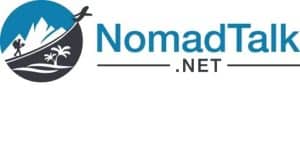There appears to be a growing trend in the “digital nomad community” for people to declare that they are no longer “digital nomads” but rather “location independent” but is this pure semantic silliness or is there an actual difference between the two?
Technically, there is a difference. Digital nomads are people who work online and travel. Location-independent people are those who work online and have the option to travel but often choose not to exert that option.
In many cases, these are nomads who have settled in a place and are, rightly, not going to call themselves “Nomad 2.0” (a ridiculous idea that nomads don’t need to travel to be nomads) but no longer wish to be called “digital nomads”. They still work online but the only travel they do is for vacations.

But there are rising numbers of people who are simply rejecting the phrase “digital nomad”. They still work online and travel but when it comes to introducing themselves – they opt for “location independent professional” and make no mention of “digital nomads” except, perhaps, to laugh them off.
Why?
Table of Contents
The Trouble With Digital Nomads
There was a time in South East Asia when the lowest person on the expat pecking order was the unqualified English teacher.
That’s not someone with a post-graduate certificate in education and a job at an international school – those people are professionals.
We’re talking the spotty oik who left university (or sometimes skipped university and just bought a pretend degree certificate on the Khao San Road) and decided to fund their South East Asian adventures by teaching English to kids.
The reasons they were scorned are that a.) the money they earned for this was utterly terrible compared to most expats and b.) they couldn’t teach their way out of paper bags and c.) most of them were borderline illiterate (they would explain this by whining “I am only teaching them to speak.”).
It is very hard to argue that an unqualified English teacher adds any value to the chain except as a “white face” (and yes, ladies and gentlemen – in most of Asia, if you want to get paid at all as an unqualified English teacher, you really, really need to be white) to convince gullible parents that their kids will learn from someone who is good at English.
Today, this is no longer the case. In fact, the English teacher is now delighting at their newfound social status boost and there’s a new swimmer at the bottom of the international pond. That’s right, it’s the digital nomad.
This is why:
The “Digital Nomad Community”

I’ve spoken in other articles about the “digital nomad community”. In general, I feel they’re more effort than they’re worth.
It’s full of noisy, anxious 20-year-olds without a clue, selling “live like a king in Thailand for $500” type garbage or worse “dropship like a boss” material. These people stride around places like Chiang Mai loudly announcing their “digital nomad” status to anyone who will listen.
You’d think they’d know that tuk-tuk drivers don’t understand and don’t care but it won’t stop them from trying.
They have become the public face of “digital nomadism” and frankly, they’re embarrassing and stupid.
You can spot them a mile away as they cling to their MacBook and iPhone that their parents bought them for their adventures as they do nothing whatsoever of value.
Whenever anyone disagrees with their stupid or dares to offer constructive criticism – they fall upon them like a pack of baying dogs.
Because delusion is all they have, how dare you take it away from them?
The Conformity Of “The Digital Nomad Movement”

When I learned of the term “digital nomad”, I was pretty excited. That was me. I’d been out on the road since before the term was invented. But it was brilliant – that was me! People who live independent and free lives. I couldn’t wait to get involved.
Then I discovered that the visible digital nomad community isn’t independent and free. Far from it.
They’re a bunch of conformists. They all visit the same places. They all wear the same clothes. They all have the same opinions. They all work from co-working spaces.
Now, they’re all trying to get into “co-living” (a wonderful word for “ridiculously overpriced shared accommodation”).
Yes, they dropped the corporate culture for the “digital nomad culture”. There’s no “freedom” in this.
It’s just another herd of sheep bleating in the hubs of Chiang Mai, Bali, Berlin, Sofia, etc. Where there is a low cost of living – there they are, but they never go anywhere interesting. They’re too afraid to travel, they want spoon-feeding.
Then there are the hilarious remote year programs – where people incapable of booking their own flights and hotels pay roughly 3 times what they are worth in order to travel with “like minded people”.
I didn’t cross the earth to hang around with the people I could hang around with at home. Neither did any of the thousands of people like me.
Before we even got a chance to celebrate being “digital nomads” we found that the scene had been co-opted by a bunch of conformist Millennials, desperate to sell dreams of living on a beach and amazing living on pennies.
This despite the fact that they’re all living in crappy accommodation, often in locations hundreds of miles from a beach (seriously, Chiang Mai is nowhere near a beach – you’re closer to the beach in London than you are there) and blogging about experiences they haven’t had.
No wonder people are opting to be “location independent professionals” instead. The biggest benefit to being a digital nomad is freedom and the “digital nomad community” appears to have rejected that wholesale.
Heck, I was even banned from a digital nomad Facebook group for asserting that I haven’t had a mailing address in 20 years. Apparently, that was too much for the delicate admin to handle. “Impossible!” he thundered.
If he’d lived out in the developing world, he’d know that many countries simply don’t have a working mail system. It’s pretty easy to open bank accounts, etc. in some countries, without an address.
My first international bank account was opened at a desk in an office that I was working in in Dubai. My cards, paperwork, etc. would be all be delivered in person because the mail system didn’t work. It might now, Dubai has achieved terrific things, but it didn’t back then.
In fact, my Chinese bank, will not print a statement with an address on it even if you beg them to (which made opening a Hong Kong business account really hard work).
That’s the “nomad community” – a 20-something dictating the “reality” of the world when they simply have no clue.
The Fear Of Digital Nomads

Many of the location independent professionals have one other thing in common – they’re afraid of the “digital nomad community”.
They’ve been vilified, attacked and abused for daring to express their opinion. Opinions that usually accurately reflect the way that the world works.
I often get dozens of private messages and e-mails from people who can’t believe that if I join a group – I continue to stand by my guns when everyone is screaming at me. They offer words of thanks and support because they say they simply can’t handle it.
Yes, the “digital nomad community” is, in fact, often a community of bullies. The smaller communities based in “off the beaten path” locations are often very different but the big groups?
They’re often deeply unpleasant. If you don’t want to dwell in fantasy land with their dodgy business methods designed to exploit you; you’re going to feel their wrath.
I witnessed one group, whipping up a storm to abuse somebody on Medium who had dared to write a piece about how they hadn’t enjoyed the digital nomad lifestyle.
There’s only one word that applies to somebody who feels they need to bring a bunch of other people to attack someone – and it’s “bully.”
Nobody likes being bullied. In particular, most successful “digital nomads” are older, they have real businesses and don’t see why they should participate in a community of bullies that seems to defer to those who have never achieved much of anything but who can shout the loudest.
So, it seems that, for now at least, the term “location independent professional” is here to stay.
The Articles Of Digital Nomad Failure

The endless stream of articles and videos coming out of “digital nomad life” on how to be poor and stay poor aren’t helping the “digital nomad” cause either.
A 20 sqm apartment is not “luxury accommodation”. A diet of cup noodles and rice is not “healthy living”. Attempting to live on $300 a month is miserable and not “living like a king”.
This is pretty obvious to anyone over the age of 25. Though there are plenty of 2nd generation loser digital nomads in their 30s trying to sell these ideas to idiots in their 20s too.
One of the biggest advantages of this life is something called “geo-arbitrage”. It’s the idea that you can take a Western salary to somewhere with a much lower cost of living and live a much better life than you would at home.
My rent when I left the UK (20 years ago) in West Yorkshire (a fairly remote part of the country with poor job prospects, particularly out in the country where I lived) was about $800 a month. That included no bills and no services. It was just the rent.
20 years later. My rent is, currently, $600 a month. This includes twice-weekly cleaning services (from top-notch professionals – not some half-hearted mop pusher). It includes my Internet and TV services. It includes maintenance of everything in the apartment.
They supply the bedding, the towels, the pots and pans, the kettle, the microwave, the stove, etc. too. I had to buy that stuff in the UK.
In addition, there’s a gym and a swimming pool in the building. 24-hour security on the door. I am entitled to a car parking space if I want one (I don’t drive).
My apartment isn’t quite as big as my small house in Yorkshire, but I have no real need of any extra space, in fact, if Megan weren’t sharing it with me – it would be too big for just me.
My electricity and water bill come in at less than $200 a month.
So, I am living a much higher standard of life for less money than I paid in rent – 20 years ago. (Today, it would be more, much more to rent the same place).
This is geo-arbitrage in action. Same money. Much more stuff for it.
Too many digital nomads don’t understand this. They think it’s bringing in much less money and barely scraping by. They think this is a great idea because locals get by on similar amounts.
They don’t understand that locals get healthcare, need no visas (or visa runs), often live in family homes rent-free, and can access much lower local pricing on a host of services and in many cases for essential items too.
In short, they’re not living like a Thai peasant farmer. They’re living worse.
The Thai farmer cannot understand how somebody born to the advantages of living in the West can be this foolish. Neither can anyone successfully working online and traveling.
Nobody on earth can understand how this could be considered “living like a king”.
The thing that’s most frustrating about this is that almost anyone can earn a decent living online.
I am not talking about becoming a multi-millionaire YouTube star or an Instagram “influencer” but if you have half a brain and a little dedication then with 2-3 years’ worth of work you could easily build a business that pays $5,000-$10,000 a month and that’s “living in luxury” (if still not, quite, like a king) in South East Asia.
The digital nomad community isn’t made up of helpful, friendly people. It’s made up of people who want to drag you down and keep you there.
This is just another reason that location independent professionals don’t want to be tarred with the “digital nomad” brush.
Reclaiming The Digital Nomad Ground

I don’t like the phrase “location independent professional” very much – it sounds like a corporate position. Even though, it represents people who are rejecting the corporate way of life.
I do like “digital nomad”. It’s what I am. It’s what Megan is. It’s not what the “digital nomad community” is.
So, we’re taking a principled stand. We’re not going to sell living below the poverty line. We’re not going to tell you that you’re going to be rich beyond your wildest dreams.
We’ll break down things with an eye on reality.
That is, realistic objectives, worst-case scenarios and you can dream of the absolute best cases. It’s worth noting that for all the boasting of the “digital nomad community”, we’re yet to meet anyone in it whose net worth is beyond “decidedly average”.
Whereas, we’ve met a lot of very wealthy “location independent professionals”.
Let’s change it up. Leave the corporatist “digital nomad movement” the “location independent lifestyle” and reclaim the “digital nomad” moniker for those who are free to live where they want and who can choose their lives in a pleasant and comfortable manner.
